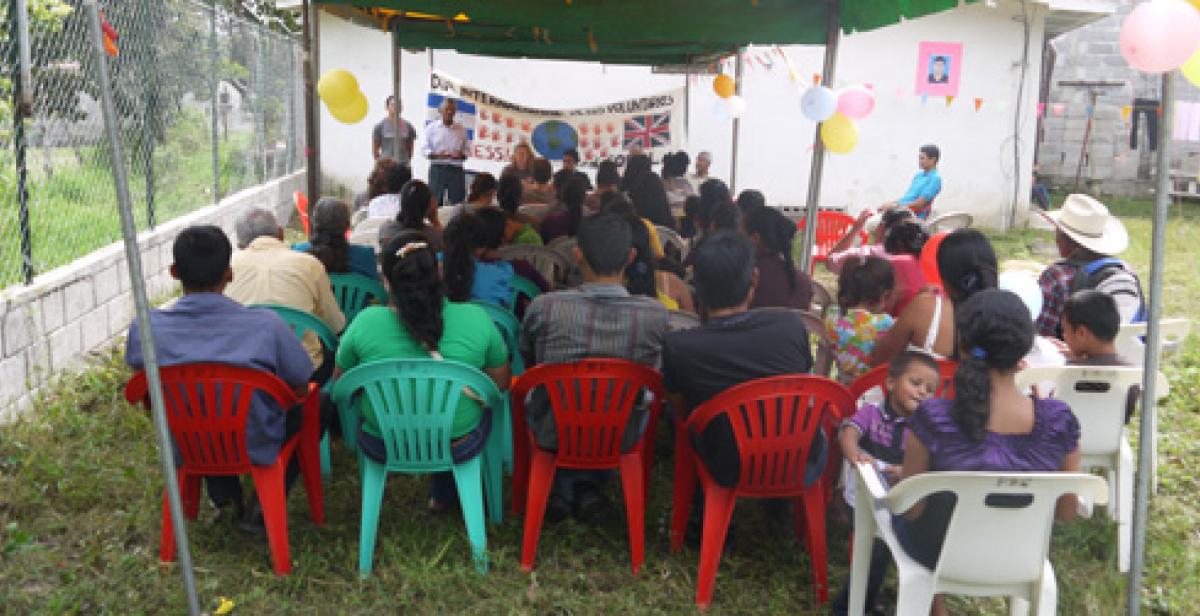If there’s one thing we’ve learnt from our time in Honduras; it’s always have a backup plan.
After just over two months in Gracias, Friday marked the last day of our project. Coinciding with International Volunteer Day we organised a big march through the town, starting at the hospital and ending at the fort. We met with some of the other charities working in Gracias and with the city’s administration to sort out the details. We set to work making a banner and placards, arranging transport from the communities and food. But then at the eleventh hour, for reasons still unbeknownst to us, the event was cancelled.
Backup plan!
We decided to hold the event at our house instead, with less than a day to make the arrangements. While it was smaller than we planned, the event was still a great success. Attendees heard from our group leaders and facilitator as well as farmers we’ve been working with. We did a march around the local football pitch and held a minute’s silence for Kelvin – a national volunteer in the previous cycle who died in September after suffering from leukaemia.
After that the event wrapped up and it was time to say goodbye to our nationals. We had a party that night, eating a traditional Honduran meal, exchanging Secret Santa presents and dancing for hours. The next morning one by one the nationals peeled off back to their respective lives. It was incredibly emotional. The inclusion of national volunteers is what makes the ICS programme different. Giving nationals the opportunity to participate and make a real difference in their communities, not only does it ensure the projects are more sustainable through their continued work, but it also means that British volunteers get to meet our contemporaries in the country.
The early 20s are when you really start to think about the future. What career you want to do, who you’ll marry and when you’ll meet them – and by the end of your 20s these things are supposed to be set. It was enlightening to hear that our national volunteers were thinking about the future as well. Although they don’t have anywhere near the amount of opportunities we have in the UK many of them do not want to simply be farmers like their parents and they regularly talked about relationships, marriage and love.
We’ve worked on eight farms, painted seven murals, taught English classes, visited Mayan ruins and climbed two mountains. But for me, getting to know the nationals was the clear highlight of the programme.
Before arriving in Honduras I was very worried that, because I didn’t speak much Spanish, I wouldn’t be able to interact with them. But they treated us with such warmth, understanding and kindness, that it didn’t matter. That more than anything else, is what I’ll take away about Honduran culture. How friendly and welcoming the people are, and that was the best cultural exchange we did.
After seeing our group walking arm in arm, one of the national’s fathers remarked that we all looked like siblings, and that’s because we were. We became one big, cross-continental family and saying goodbye to them, knowing that it’s unlikely we’ll ever see each other again, was heart wrenching and it was then that one thought popped into my head.
Guess I’ll have to come back…
Written by ICS volunteer Daniel Fine



